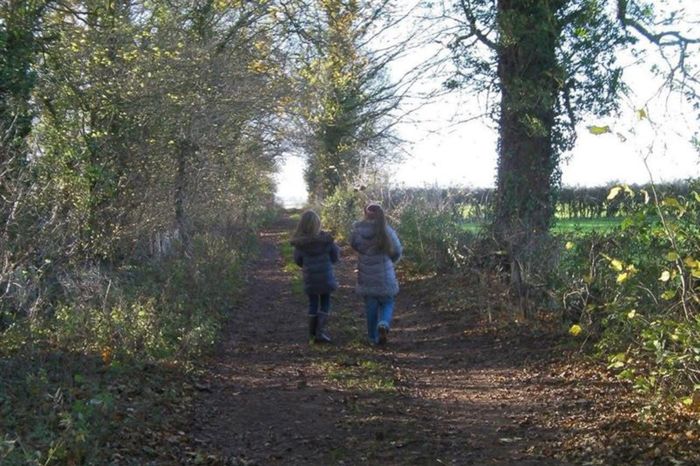Gene Hackman: A selective retrospective
Ruby Randall pays homage to one of New Hollywood’s greats

When F. Scott Fitzgerald passed away, Dorothy Parker murmured “the poor son of a b*tch” at his funeral (possibly owl-eyed). Kafka wasted away on his bedspread in a parody of Gregor Samsa’s demise. Mark Twain came and went with a comet.
Gene Hackman’s sad and initially quite mysterious death has been likened by many to something you’d find in one of his films. His death belongs to that strange phenomenon we sometimes see when the lines between life and art blur. However, as eulogies fell in before the funeral and the cause of death was set in stone, Hackman’s devotees are reminded that all we can really see of an actor’s life is their art; nothing of the blurry corners of a life around it. With this in mind, by drawing from all the Gene Hackman films my dad recommended, I wanted to curate a short list of three smaller(-ish) roles across his career that stand out, and reflect the range of such an eminent actor’s abilities.
Bonnie and Clyde (1967)
Considering the wealth of classic anti-hero films that make up the Americana genre, Bonnie and Clyde (1967) is notable for a reason. Gene Hackman’s role as Clyde’s older brother, Buck Barrow, earned him a nomination for Best Supporting Actor, and marked the start of his relatively late-blooming renown.
“This kind of western myth […] revolutionised Hollywood action films and gave them a new humane core”
Despite the pulpy plot line this kind of western myth breeds (see: Faye Dunaway in a runaway car, banging down a dirt track wearing hot pink lipgloss; Hackman himself getting blown to bits through a window; the wooden romance between the two titular lovebirds), it revolutionised Hollywood action films and gave them a new humane core. Its harrowing and gratuitous ending shaped the more liberal film classification system we see in Hollywood today, and its influence can be felt in such classics as Butch Cassidy and the Sundance Kid (1969), The Godfather (1972), and the big bloody pile of Tarantino’s oeuvre.
The Birdcage (1996)
As seen from the inception of his career, over 30 years later Hackman still had his canny finger pressed on the pulse of subversive, important filmmaking, despite playing the fool within these films themselves. Based on a 1973 French play, The Birdcage (1996) follows Armand (the outrageous owner of a Miami drag club) and his partner Albert try to “play it straight” when meeting his son’s right-wing prospective parents-in-law. Playing Senator Kevin Keeley, Hackman performs a hilariously clueless fish-out-of-water, who confuses Albert in drag to be Armand’s loving wife, which he will eventually don himself to escape a seamy pap attack.
By embodying the prevalence of politicians calling for “family values” in a post-AIDS, post-Stonewall world, Hackman plays on a delicate nerve. Yet in measuring Keeley’s earnest buffoonery, and metamorphosis into a real representation of ‘family’ with charm and warmth, he supports a hopeful conclusion to a seismically impactful film.
The Royal Tenenbaums (2001)
The role that reinvigorated Hackman’s career was specifically written for him. Though he tried his very best to avoid it, the impact of playing the titular Royal Tenenbaum cannot be understated. Wes Anderson’s script places him at the heart of his dysfunctional family of former savants, for better and for worse. Drawing on J.D. Salinger’s Franny and Zooey (1961) and The Magnificent Ambersons (1942), The Royal Tenenbaums depicts a family shattered by the continuing absence of a father and “two decades of betrayal, failure, and disaster,” with a distinctly ‘Andersonian’ comedic edge. It seems to act as Lady Bird’s (2017) twin flame: a film made for anyone who understands how difficult it can be to love a parent who’s hurt you, or accept that they too can be flawed. As the charmingly apathetic Royal, Hackman wholly embodies this persona. At once the audience yearns for him and rejects him, reaching for something behind the performance. This quality seeps through Hackman’s character-based roles and imbues him with a unique three-dimensionality that has rendered him a singular actor, in Hollywood and beyond.
Want to share your thoughts on this article? Send us a letter to letters@varsity.co.uk or by using this form.
 News / Cambridge student numbers fall amid nationwide decline14 April 2025
News / Cambridge student numbers fall amid nationwide decline14 April 2025 News / Greenwich House occupiers miss deadline to respond to University legal action15 April 2025
News / Greenwich House occupiers miss deadline to respond to University legal action15 April 2025 Comment / The Cambridge workload prioritises quantity over quality 16 April 2025
Comment / The Cambridge workload prioritises quantity over quality 16 April 2025 Comment / Cambridge’s tourism risks commodifying students18 April 2025
Comment / Cambridge’s tourism risks commodifying students18 April 2025 Sport / Cambridge celebrate clean sweep at Boat Race 202514 April 2025
Sport / Cambridge celebrate clean sweep at Boat Race 202514 April 2025





